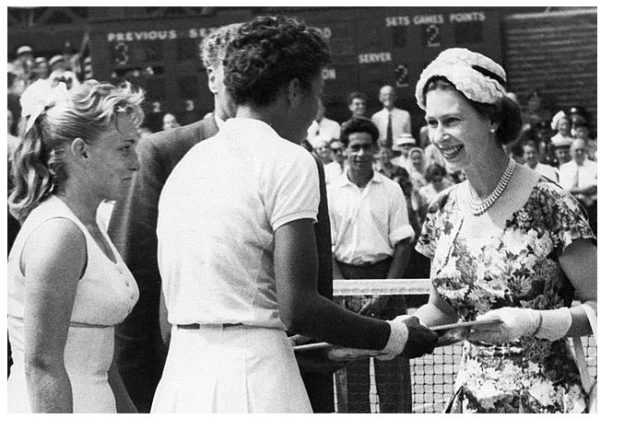The letters-to-the-editor came quick and steady. Some were repulsively nasty. None of the authors could read, reason or write. All had the attention span and concentration powers of a gnat (with apologies to the gnat community).
For some reason, the image conjured by the bare-fanged fury of one letter writer is of Lisa Simpson, transformed into a mountain of immobile, doughy flesh, in “Mama’s Watching Her Stories.”
Unable to read or comprehend a paragraph, the writer, Annemarie, launched into a sneering screed:
If you haven’t yet realized your egregious error—if only one is present—William is the elder grandson of Elizabeth, married to Kate, who together have three children. Harry is married to Megan Markel and they have two children. I couldn’t even finish your commentary as I began questioning other statements you made as I read. Sorry Ileana, but your credibility is shot with me: in my estimation you now rank right up there (or should I say ‘down there’)with the rest of the “woke” media—you have list all credibility with me. I am extremely disappointed that the editors at WND allowed this column to get into print because your dismal transposition reflected badly on them as well.
My reply about the words (in “Bar Meghan Markle From The Great Lady’s Funeral“), which the dolt was unable to read and comprehend:
It’s sad that you’d rather shoot your mouth off nastily, believing you are being clever, than read with care.
Here is the correct excerpt, without your imagined contortions. You appear unable to deal with, 1. A long sentence. 2. An em-dash in the middle of it. 3. Capital “B”.
Omit the em-dash— it’s like a clause—and you’ll get the “correct answer.”
Next time, read, and re-read before dashing off a hateful note to someone who toils thankless for liberty with her capable WND editor. I’ve separated the paragraph into sentences to make it easier for you.
William worked as an RAF search and rescue helicopter pilot.
Before marrying that dolt from Tinseltown—Meghan Markle, who imagined she was a match for the queen of England—young Prince Harry had served in Afghanistan, and wore his Afghanistan Campaign medals on his brother’s wedding day. …
To my surprise, there were more such letters.
And, Boobus Americanus is headed for the voting booths.
An aphorism from one of Oscar Wilde’s plays came to mind. I paraphrase: “She thought that because he was stupid he’d be kindly, when kindliness requires imagination and intelligence.”
Stupid is usually mean.




